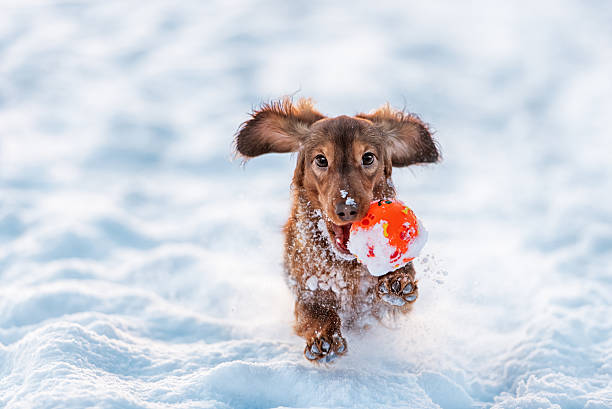Dogs, like their human counterparts, can feel the effects of cold weather just as much. It is important to take steps to keep them warm and comfortable during the colder months. Here are a few tips to keep in mind when caring for your dog during the winter:
Keep your dog’s coat healthy and groomed
A healthy coat will provide insulation against the cold. Brush your dog regularly to remove any matting or tangles, and consider giving them a trim if their coat is thick.
Dress your dog for the weather
If your dog has short hair or is particularly sensitive to the cold, consider dressing them in a warm dog coat or sweater.
Be mindful of the time spent outdoors
Limit the time your dog spends outside in very cold weather. If they must be outside for a prolonged period, make sure they have a warm and dry place to rest.
Watch for signs of hypothermia or frostbite
Dogs, like humans, can suffer from hypothermia and frostbite in extreme cold. Symptoms of hypothermia include shallow breathing, sluggishness, and low body temperature. If you notice any of these symptoms, bring your dog inside and contact your PetVet veterinarian immediately.
Be aware of chemicals
Be aware of chemical and rock salt on the ground which can irritate your dog’s paws and cause chemical burns. Rinse your dog’s paws after walks or use doggy boots to protect their paws.

Things to look out for
Hypothermia
If a dog is exposed to extremely cold temperatures for a prolonged period of time, they can develop hypothermia, which occurs when the body temperature drops below normal. Symptoms of hypothermia in dogs include shallow breathing, sluggishness, and low body temperature.
Frostbite
In extremely cold temperatures, dogs can also develop frostbite, which occurs when the blood flow to the extremities is restricted, causing the tissue to freeze. Symptoms of frostbite in dogs include pale or blue skin, and cold to the touch.
Arthritis and Joint pain
Cold weather can also exacerbate conditions such as arthritis and joint
pain in dogs.
Dry skin and cracked paws
Cold weather can also cause dryness and cracking of a dog’s skin and paws, which can be uncomfortable and even painful for the dog.
Cold weather can be tough on dogs if proper care is not taken. By dressing them appropriately, limiting their time spent outside in extreme temperatures, monitoring for signs of hypothermia or frostbite, and keeping them active, you can help ensure that your dog stays happy and healthy during
the colder months.

